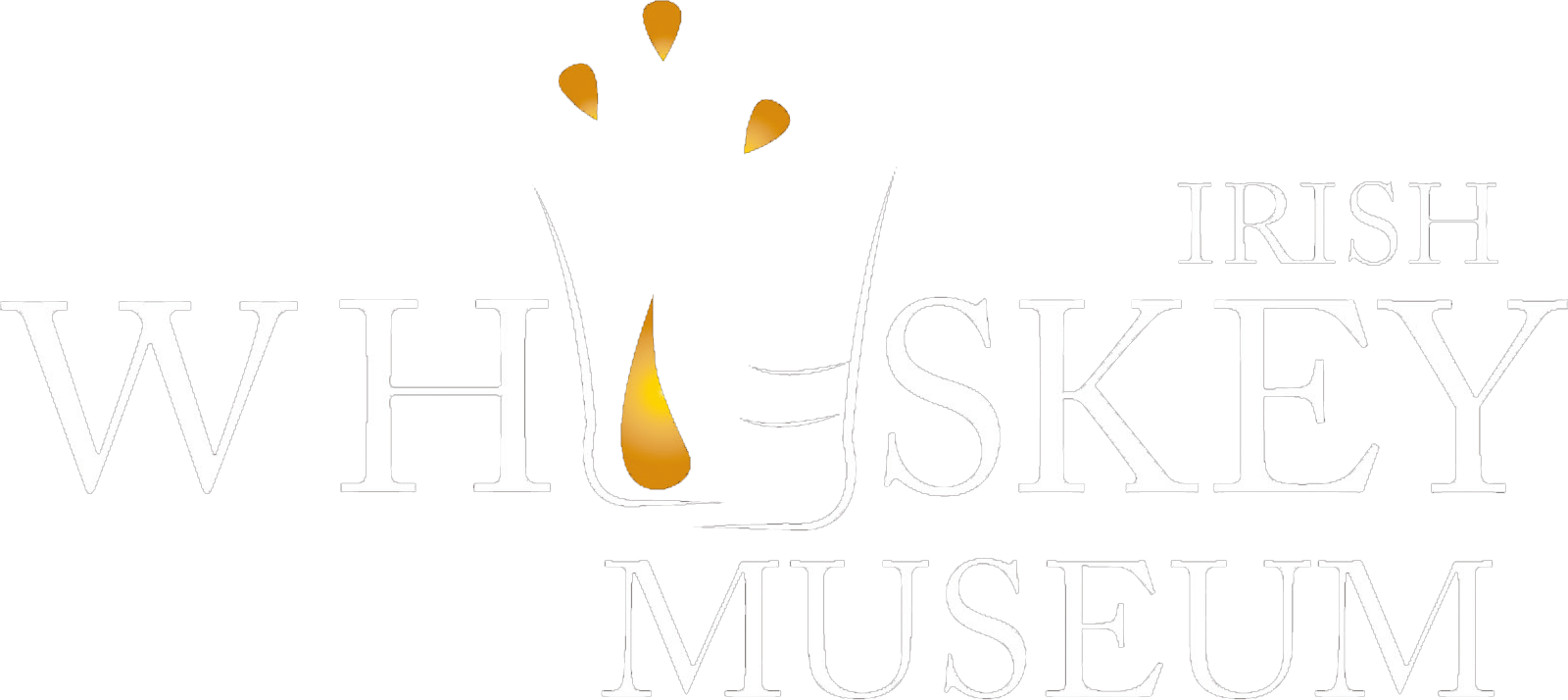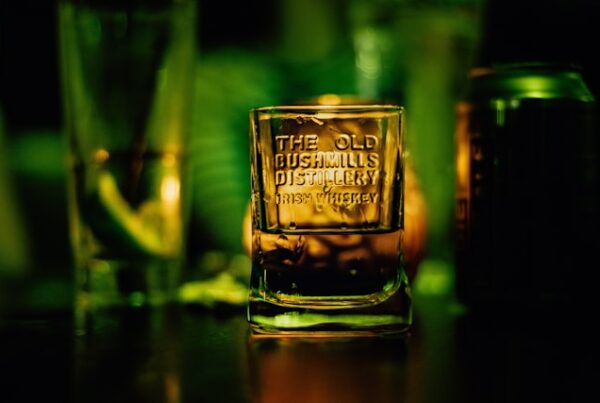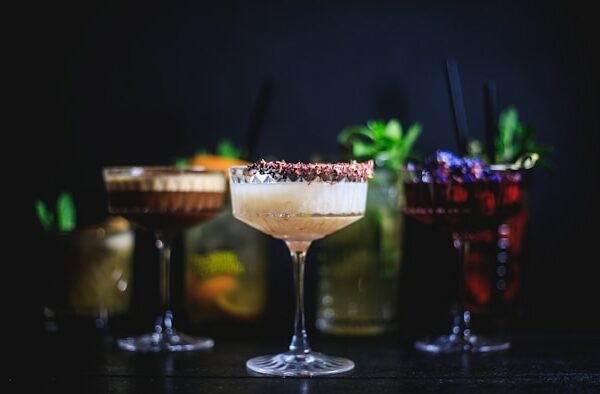Whiskey is a spirit steeped in the Irish tradition — and also in the Irish language. From the very name “whiskey” to the almost poetic words that are used in its production and enjoyment, Gaeilge has shaped the identity of Irish whiskey for centuries. In this blog post, we’ll uncover the words and phrases that connect whiskey and the Irish language until today.
Uisce Beatha
Pronunciation: ish-ka ba-ha
Meaning: “Water of life”
Of course, we’ll start with the most important phrase a whiskey lover has to know: Uisce Beatha. The two words are the origin of the word “whiskey” itself. “Uisce” means water, and “beatha” means life. Combined, they form a direct translation of the Latin aqua vitae, a term used across medieval Europe for distilled alcohol in medicinal and spiritual contexts.
The phrase “uisce beatha” first appeared in Irish texts in the 15th century and was gradually anglicised into “usquebaugh,” “usky,” and eventually “whiskey.” The origin of the word also reminds us of the origin of the spirit itself – which made its way from a remedy to a drink enjoyed in celebrations or in day-to-day life.
Fun fact: If you’re on the streets of Dublin and you look to the ground, you can spot manhole covers with the word “Uisce” on them. They are part of the city’s water and sewage system.
Braiche
Pronunciation: brah-ha (commonly anglicised as brok or brak)
Meaning: Malted barley
One of the main ingredients of Irish whiskey is, of course, barley. While in a single malt whiskey only malted barley is used, it’s a mix of malted and unmalted barley in a single pot still. Either way, especially malted barley is a key ingredient – and that’s also mirrored in the Irish language. Here, the word “braiche” refers to malted barley and is used in discussions of brewing and distilling.

Source: Sam Barber on Unsplash
Poitín
Pronunciation: put-cheen
Meaning: “Little pot” (from potaín)
Poitín is a traditional Irish spirit, often dubbed “Irish moonshine” or “mountain dew.” You might have heard about it as a predecessor of Irish whiskey. It predates modern whiskey and was originally distilled in small copper pot stills — hence the name, which refers to the small size of the still (pota). Historically, the spirit was made from anything that could be fermented, like barley, sugar beets, molasses, or potatoes. It often had a higher alcohol content (60-90%) than whiskey has today, which made it illegal to distill or consume for centuries. It was banned in 1661 and remained underground until it was legalised in 1997.
Today, “Poitín” is enjoying a bit of a revival as several Irish producers label their spirit as such. However, for many Irish people the word “Poitín” is and will always be connected to an illegal spirit and the rebellious heart of the Irish.
Sláinte Mhaith
Pronunciation: slawn-cha wah
Meaning: “Good health”
This phrase – or its shorter version, “Sláinte” – is probably the first one you’ll learn when visiting Ireland. And the one you might use the most. “Sláinte” means “health,” and “Mhaith” means “good.” Combined, the two words make the full version of the classic Irish toast “Sláinte.” So, when drinking whiskey or a pint in good company, make sure to raise a glass and say “Sláinte” to wish good health to all those present.

Source: Anastasia Zhenina on Unsplash
Taoscán
Pronunciation: tass-kawn
Meaning: A small measure or dram
Would you like to try a sip or a dram of whiskey? Then, “Taoscán” is the word you are looking for. It’s used to describe a little pour of whiskey. Not a specific amount or size of glass, just a sip to wet the lips and warm the heart.
Deoch an Dorais
Pronunciation: dyuck un dur-ish
Meaning: “Drink of the doorway” / Farewell drink
Just a quick drink before someone departs, traditionally shared at the threshold of a house. This custom is described by the words “Deoch an Dorais,” literally meaning “Drink of the doorway.” Sharing a drink before sending someone off on his or her way is a means to show hospitality and to wish safe travels. And if the Irish are known for one thing, then it’s their hospitality!
Fun fact: The “drink of the doorway,” or the parting drink, is even a topic in Irish folklore.
Whiskey and the Irish Language cannot be separated
As Irish whiskey is steeped in Irish history, there are, of course, many Gaeilge words around it. And many of those are still used today. When looking at the words and phrases, you might notice that most of them aren’t just descriptive. Some of them seem to tell a small story and enrich the words and the meaning behind them. Kind of fitting for a culture that loves to tell and sing its stories.
Source header image: Gabriel Ramos on Unsplash





